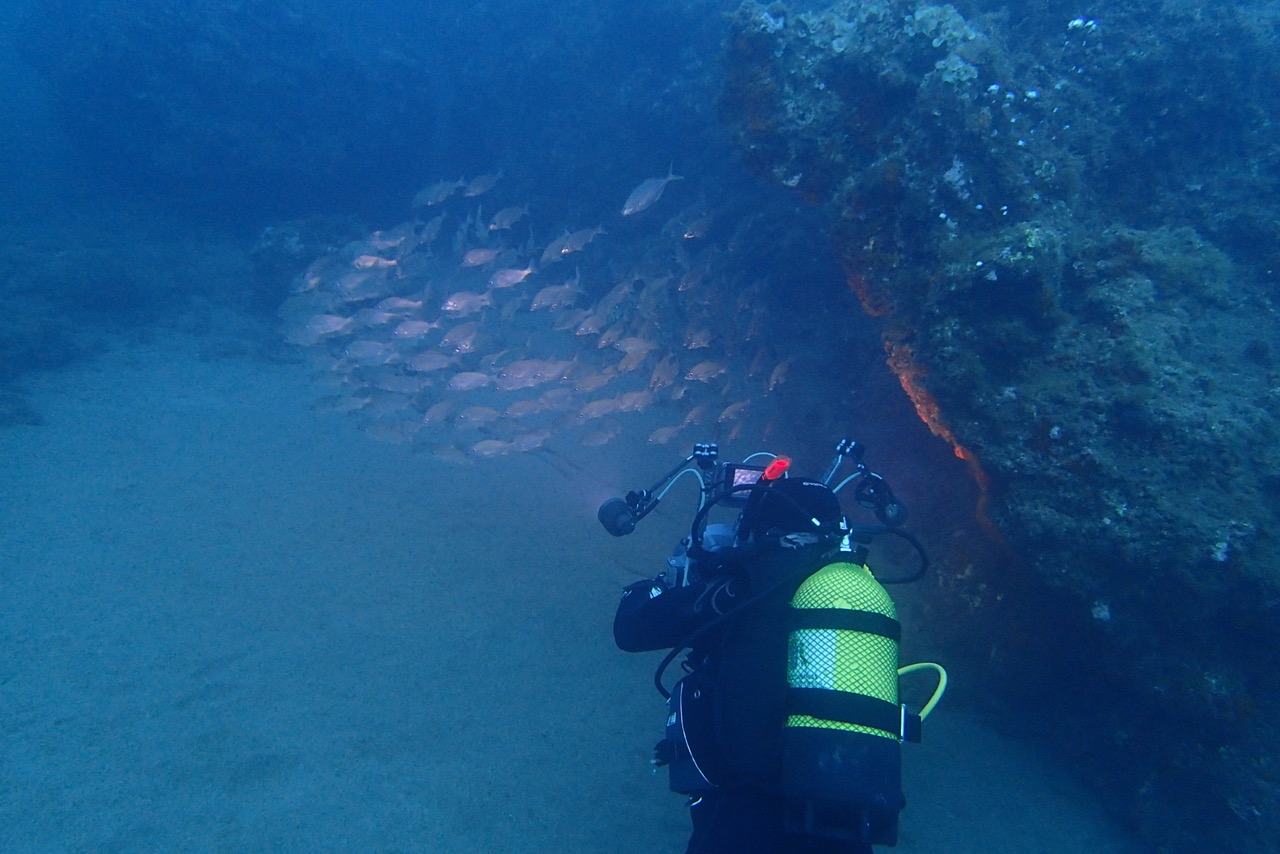This new study with the name 'Marine SABRES', in which three researchers from the ECOAQUA University Institute participates, brings together an interdisciplinary consortium of world experts in the field of Ecosystem Management and Socio-Ecological Systems, led by the Irish University of Cork.
The University Institute for Research in Sustainable Aquaculture and Marine Ecosystems (ECOAQUA) from the University of Las Palmas de Gran Canaria (ULPGC) has managed to raise more than 400,000 euros for the development of a new European project that will analyse the interactions of maritime activities (blue growth) with biodiversity and ecosystem services, with the aim of promoting good marine management practices with social support.
This European scientific initiative called Marine SABRES (an acronym for, “Marine Systems Approaches to Biological Resilience and Ecosystem Sustainability”) has an overall funding of near 10 million euros from the HORIZON-CL6-2021-BIODIV-01 call for proposals on Biodiversity and Ecosystem Services.
The duration of this project, which is about to start, will be 4 years, and meets, under the leadership of the Irish University of Cork, a total of 22 interdisciplinary teams from different European countries, leaders in the field of Ecosystem Management and Socio-Ecological Systems research, working in three European coastal regions.
The ULPGC is participating in this initiative with researchers from ECOAQUA. Ricardo Haroun, acting director and member of the Biodiversity and Conservation group (BIOCON), will be the principal investigator of the project, while Fernando Tuya, director of the BIOCON group, and Inmaculada González, director of the Tourism, Territorial Planning and Environment research group (TOTMA), will complete the scientific team directly involved in Marine SABRES.
Its tasks will mainly consist of coordinating the case study covering the European Macaronesian archipelagos (Canary Islands, Açores and Madeira), where the interactions of sectors linked to blue growth with the large marine biodiversity and ecosystem services existing in the surrounding waters will be analyzed, considering from a social and environmental management perspective.
In addition to these Macaronesian archipelagos, the researchers of this consortium will work on two other demonstration cases studies of good ecosystem management practices: the North Sea Islands Arc and the Toscana archipelago in the Mediterranean Sea.
Apart from the ULPGC, through the University Institute ECOAQUA, two other Spanish partners are involved: LifeWatch ERIC, a European centre located in Seville dedicated to biodiversity and ecosystem research, and the AZTI Foundation, in the Basque Country.
The global results of 'Marine SABRES' will be extremely useful to support the management of the marine environment of the old continent from an ecosystem approach, reversing the loss of biodiversity and promoting its conservation by integrating socio-ecological measures, leading to a sustainable development of the coastal and maritime sectors.
The final aim of this ambitious project will be to contribute with consensual proposals to an effective protection of biodiversity and marine ecosystem services, allowing for a resilient blue economy that favours local communities, deepening and improving knowledge of the interactions between different activities of coastal and marine sectors, the resilience of marine biodiversity, as well as the services and products that coastal and marine ecosystems provide to these communities.
In this sense, within the framework of this research, the main existing barriers will be identified, especially in the case of products derived from marine natural heritage, and the impacts on biodiversity such as the deficiencies in the application of measures for the conservation of the marine environment, for which measures and mechanisms will be proposed to overcome these barriers.
The University Institute ECOAQUA works to promote research, innovation and postgraduate training in sustainable aquaculture, conservation and sustainable use of marine and coastal resources. At present, this multidisciplinary institute encompasses 4 research groups (GIA, BIOCON, EOMAR and TOTMA), two of which are part of 'Marine SABRES', for research on blue growth policies and the circular economy.
For more information contact with Beatriz Díaz - beatriz@mandarinacomunicacion.es – 620410871


